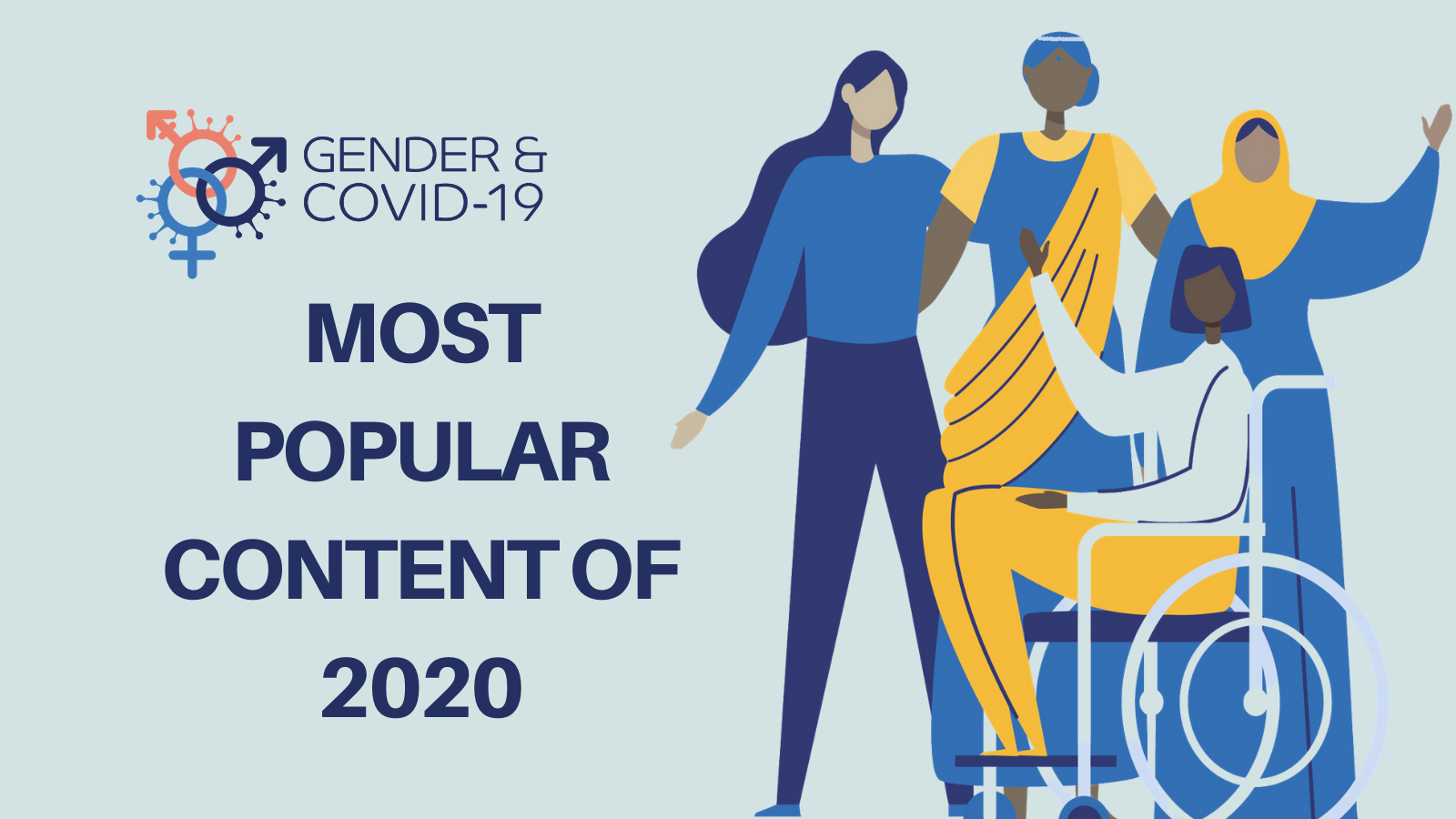We had a look back through google analytics to see which blogs and resources have been most popular since we launched in the site in July 2020. Kate Hawkins gives us the low down on what you found most compelling. It’s a mixture of types of outputs, geographical settings and themes.
This brief by Allie Solomon, myself and Rosemary Morgan summarises learning from feminist scholars in Hawaii and Canada on how the economic recovery to COVID-19. It’s a quick read and useful if you are advocating for gender-transformative policy-making in your own setting.
-
Tips for linking social protection and gender-based violence prevention and response during COVID-19
Lara Quarterman and Amber Peterman provided a round-up of core considerations for programming that integrate social protection with violence prevention. As part of the Social Protection Approaches to COVID-19 Expert Advice helpline (SPACE) team, they are helping governments and humanitarian and development partners, make quick decisions. The blog provides you with some ‘quick wins’.
Kui Muraya argues that in Africa, pandemics and their effects are not gender blind. They have the potential to magnify existing gender inequalities and the plight of other vulnerable populations; such as those with disabilities, refugees, and internally displaced persons. Read her brief!
A brief that is also a sign-on letter! Allie Solomon, Rosemary Morgan, Clare Wenham, Julia Smith, Denise Nacif Pimenta, Valerie Mueller, Asha Herten-Crabb and myself, outline how the Biden-Harris Transition Plan in the US can be made more gender-responsive. Still time to sign on and we will be doing more advocacy on this topic in 2021.
“A quick google search of ‘COVID-19 and Gender’ yielded more than 26,000 papers as of 27 August 2020, suggesting a vast literature to guide our understanding on this issue,” explained Anita Raj, Nabamallika Dehingia, Anvita Dixit and Lotus McDougal. As part of their project EMERGE, they gave us a run down on the peer reviewed evidence to date. Enlightening!
This blog in August by our colleagues, Camila Pimentel and Denise Pimenta, explored the response to COVID-19 in Brazil with a gendered lens. It was sobering reading. From water and sanitation, to housing, to healthcare, to labour and health care – women bear the brunt of the pandemic.
Our friends at Population Council – Chi-Chi Undie, Nicole Haberland, Sanyukta Mathur, Isabel Vieitez and Julie Pulerwitz – provide excellent guidance on the gender dimensions and implications before, during, and after data collection. Some practical guidance for those generating evidence.
This elegant blog argues that people do not live as “raced” beings one day and “gendered” beings another. Derek M. Griffith, Jennifer M. Ellison and Andrea R. Semlow argue we need to refine our data sources to consider race, place and gender simultaneously to respond effectively to the pandemic.
Amon Ashaba Mwiine has written a couple of blogs for the site and this was one of the first we ever posted! What kind of narratives around men and masculinities did COVID-19 and its associated preventive measures set off? What do such narratives teach us about changing gender relations and masculinities? A must read.
Last but not least, we finish with a brief from our colleagues in Bangladesh, Md Tanvir Hasan, Md Uzzal Chowdhury, Amina Amin, Sabina Faiz Rashid and Atonu Rabbani. They used rapid survey data on COVID-19 to understand the gender-based perceptions of different population groups on the COVID-19 pandemic.
We hope you enjoyed this New Year round up and that you will continue to engage in the site in 2021. If you have suggestions for areas we should be covering or want to give the authors some feedback just pop a comment in the box. Onwards…






